#18th century romance
Text
Laces for a Lady - 18th century poly shifter romance (Part one, sfw)
Disclaimer which I’m including in all my works after plagiarism and theft has taken place: I do not give my consent for my works to be used, copied, published, or posted anywhere. They are copyrighted and belong to me.
Well folks, here it is. You said you were interested, so I hope it meets expectations! Here's part one for you, of a multi part story. If you want to kno wmore about it, you can find some more info here, as well as a little 'mood board'.
Content: sfw, the daughter of a country gentleman from Sussex relocates to a sleepy fishing village in Cornwall in order to become the paid companion of a young widow, and meets some of the locals on her arrival.
Wordcount: 3972

Five and twenty ponies,
Trotting through the dark -
Brandy for the Parson, 'Baccy for the Clerk.
Laces for a lady; letters for a spy,
Watch the wall my darling while the Gentlemen go by!
~ from ‘A Smugglers’ Song’, Rudyard Kipling (1906)
In the cool, lavender light of a late spring dawn, a gaff-rigged cutter drew into the sheltering arms of a small bay at high tide, and quietly dropped anchor. As if the soft splash had awoken him, a cockerel spluttered to life in a farmyard somewhere inland, but most of the villagers were already up and awake and steering their small, secret fleet of boats out from the golden crescent of sand beneath the cliffs to meet the waiting ship fresh from Roscoff.
Beneath the waves, where churning kelp moored itself in unyielding handfuls to the ancient granite of the sea floor, a long, serpentine shadow snaked between the stalks, and the currents of the coastline subtly shifted. Any revenue men trying to sail along the coast from Fowey to catch the smugglers would have found the wind and tide set dead against them, and in the subtle wake that wafted from the mottled, eel-like tail as it passed unseen, the waters of the secluded inlet calmed beneath the keels of the scurrying fishing boats. The drag of the oars through the waves lessened, and muscles already tired from heaving and hefting goods up the cliff moved a fraction easier for the unexpected boon.
Between them over the next hour, the gathered men and women shifted their haul of half anker barrels and dozens of crates and boxes of goods ashore. The small kegs of rich, French cognac would fetch a pretty price all across Cornwall, and along with the liquor came smaller luxuries like lace and silk, and bundles of tobacco and spiced tea, all meticulously wrapped in oil cloth to keep the sea and the salt and the water out.
And when the speedy, slender ship was riding noticeably higher in the water, the locals simply melted away into the countryside like so many mice from a late summer granary before the excise men even knew the ship from Guernsey had visited the cove at all.
Fifteen miles away, as the sun breached the horizon and cast its first rays of warmth along bellies of fleecy clouds and the flanks of blossoming hedgerows below, a stagecoach lurched and rumbled westwards along potholed roads, and a young woman stared out of the grimy window as the horses carried her into a new chapter of her life.
After leapfrogging some two hundred miles or so along the staging stations that dotted the South Coast, with nothing but a small trunk of her belongings and a thrice-read, dog-eared novel for company, Eleanor Bywater was more than ready to see the back of that infernal stagecoach. Had it not been for the small but inconveniently bulky travelling case sitting at her feet, she might have hired a horse and ridden from the last staging inn at Plymouth to reach the secluded fishing village of Polgarrack, but given that the trunk held all her worldly belongings, she had not been quite desperate enough to escape the discomfort of hard seats and poor suspension to abandon it.
Bouncing along in the nearly-empty stagecoach, she studiously tried to ignore the older woman sitting opposite her. She’d stared intently at Nel since they'd left Plymouth behind that morning, and her scrutiny had begun to make that last twenty mile stretch feel much, much longer.
Finally, after jouncing over a pothole deep enough to start prospecting for copper ore at the bottom, Nel gasped and then raised her eyes to meet the woman’s openly curious stare. She found sympathy for her own discomfort, and a small degree of kindly amusement too.
“Where are you headed, miss?” the stranger asked after Nel raised the hint of an eyebrow at her as the silence stretched.
“Polgarrack.”
At that, the woman’s grey eyes narrowed in confusion. “Now what takes a young miss like you to an old fishing village like Polgarrack?”
She looked to be in her fifties, though a life beside the harsh sea had weathered her features somewhat, and her wiry grey hair was covered by a simple linen cap. Her dress was dark and plain, though there was a hint of tired lace around the neck and cuffs. Her hands had the tough, reddened look of someone who scrubbed pots and salted fish, while Nel’s own hands were smooth and soft, if a little ink stained from sending a letter to her friend before leaving the inn that morning.
Nel laughed quietly and shrugged. “There’s no mystery to it,” she said. “I am to be employed as a companion to the widowed Lady Penrose at Heath Top House. I am expected there this afternoon.”
Given that only ladies of relatively high social standing themselves tended to become a ‘lady’s companion’, the older woman made a hasty re-evaluation of her fellow traveller, and her already ruddy cheeks flushed a darker shade as she cleared her throat and looked away.
“Begging your pardon, miss,” she said. “We don’t get many new faces in Polgarrack, is all. I didn’t mean to pry or cause offence with my questions.”
“No harm in a little curiosity,” Nel said, trying to put the stranger at ease to avoid any further awkwardness between them on the remainder of their journey. “I take it you’re from Polgarrack yourself then?”
“Oh, born and raised, miss,” she chortled. She eyed the forest green redingote Nel wore, with its rather masculine high collar, wide lapels and small, gold pocket watch dangling on a chain, and the contrasting sage green skirts beneath, and no doubt made one or two judgements of her own about the young lady. “And yourself? You don’t sound as though you’re from these parts at all, if I may be so bold.”
Nel smiled. “I’ve come from Sussex.”
The woman’s watery, grey-blue eyes widened almost comically and she gasped. “’at's a bloody long way, miss! And all on your own?” She shook her head but remembered herself and mumbled, “Begging your pardon.”
“You’re right,” Nel sighed, letting her gaze slide to the window to watch the countryside roll past in a blur of salt-bleached grass and vibrant yellow gorse flowers. “It is a bloody long way.” And her spine and backside felt every lump and bump and lurch of the stagecoaches from Sussex to Cornwall. With a warmer smile, she turned back to the woman. “My name is Eleanor, but most people call me Nel.”
“Agatha,” she replied with a grandmotherly smile of her own for the young woman. “But everyone calls me Aggie. My husband, Martin, is the village carter and smith, and we’ve got four boys, all of them either fishermen or miners. They all married too, so I’ve got nine grandchildren, if you can believe it!”
Nel offered Aggie her congratulations and another little smile, and then ventured to ask, “Will you tell me a bit about the place? I should like to know more about it, since it is to be my home for the foreseeable future.”
Aggie brightened even more and shuffled her plain, dark skirts, giving a wince and a grunt as the coach lurched over a pothole and the driver cursed audibly above them. Settled, if not entirely comfortable, she began.
“Well, see now. Folks has been fishing these waters for time out of mind. Pilchards is our mainstay, o’course, but the folks over St. Austell way mine clay, and obviously there’s copper and tin mines all over in the north of Cornwall. Mining here is as old as fishing, but it’s starting to dry up here and there now, o’course.”
She barely paused to draw breath before barrelling on, and Nel sat and listened while the older woman talked.
“Now, your Lady Penrose married into the Penrose family — see, she’s from Bath herself originally, though I can’t rightly remember what her family name was, but…” Nel let Agatha's potted history of the fishing and mining community wash over her, paying just enough attention to make polite sounds at the right pauses, but the discomfort of the journey and a decided lack of sleep was beginning to wear her attention span down to a single, fraying thread.
After two hours in the swaying, rolling coach, she felt woozy and weak-stomached, but with Aggie’s near-constant chatter, she at least had a better understanding of the politics of the little village than she’d ever have gained in six months on her own. She’d also learned why Aggie had been in Plymouth, since most folks never had any reason to travel further than the bounds of their own parish. Agatha’s sister’s husband had apparently been killed in the American Revolutionary War some ten years earlier, and since the widow’s health wasn’t the best these days, Aggie made the trip along the coast when she could to see her and take care of her.
Nel’s ticket took her as far as Whitcross, a desolate intersection of paler roads on a clifftop overlooking the tightly-nestled fishing port below, and away across the heather and tufted grass of the heath, she could just see an old manor house in the distance, flanked by tall copper beeches and ash trees. It looked slightly further away than she had anticipated, and she glanced apprehensively down at the travelling trunk at her feet.
Still, she was aching for fresh air and to be free of the sickening motion of the carriage, so she took the driver’s hand and allowed him to guide her safely down onto the hard-packed surface of the road before he lifted her case down for her as well.
From inside, Aggie peered out and scowled disapprovingly. “Now just you wait a moment,” she barked at the driver, who cocked an eyebrow but did pause. “Did they not send someone for you, dearie?” she asked Nel, still leaning out of the doorway and peering about like a disgruntled badger, and using the endearment freely. Apparently, two hours of talking non-stop at Nel had removed any pretence of formality or sense of social distance. Nel might as well have been adopted into Aggie Carter’s family as a niece by that point, and she couldn’t help but smile at the warmth it conjured in her chest.
“I… I never thought that far through,” she admitted, with her hand atop her bonnet as the wind gusted up from the sea below, soaring delightedly over the edge of the cliff and racing on inland as if to continue the momentum of the great rolling breakers that foamed and thundered against the shore. The coachman glanced at his pocket watch and groused something about a schedule that was almost immediately lost to the next inward gust.
“No, no, dearie,” the old woman scoffed. “No, you must come into the village. It’s far too far to go all by yourself, and with that case as well. Here, let me —”
“I can manage the case, I assure you,” Nel said with a gentle smile as Aggie half-toppled, half-leaned out of the coach to pick up the case. “How far is it to the house?”
“Two miles up that hill yonder,” Agatha said, pointing with one gnarled and arthritic finger towards the house on the rise to the north. “Come to the Lantern, and we’ll have one of the lads take you up once you’ve caught your breath.” The Lantern, as Nel now knew thanks to Aggie’s detailed prattling, was the inn at the centre of the village, right on the water near the harbour.
She had been about to protest, but with a sigh, she simply nodded. The constant journeying and jolting had worn her down more than she cared to admit, and while she wasn’t the kind of wallflower she’d met any number of times in London during the Season, a life led mostly indoors with few opportunities for physical activity had not prepared her for a two mile walk in heavy, too-fine clothes, carrying an unwieldy case in gusty conditions. Her family had been invited a number of times to Goodwood House to walk the large park there, and she had frequently ridden a rather spirited mare through the parkland of Lavington Hall with her dear friend William, so she was not entirely unused to the great outdoors, but she did have to admit that her experiences had been rather more curated and sanitised than the wild expanse of heathland visible on all sides of the stagecoach from Whitcross.
“You’re kind, Agatha,” she said, and let the woman heft her case into the otherwise empty coach.
The thing about a tiny village was that an outsider stood out a mile, and a young lady in her mid twenties and dressed in impractical, rich green clothes, stood out like a beacon in a dark night. Everyone turned to watch her as she disembarked from the coach. At home, she had barely garnered a look from anyone. Being the centre of everyone’s curiosity there was novel and, in a word, horrifying.
She almost blurted aloud that one would think she was a revenue man come inspecting for smuggled goods, but she bit it back just in time. Cornwall’s so-called ‘free trade’ and smuggling rackets were absolutely none of her concern as an outsider, infamous though they may be, and it would do her no good to start sticking her nose where it did not belong.
The Lantern was a half-timbered, two-storey building that faced the walled harbour. Its painted sign was peeling and sun-bleached, and it squawked something dreadful as it swung back and forth in the squalling wind. Mullioned windows glinted and shimmered, though the small, diamond panes were caked with a haze of salt spray, and alongside the inn, a hand-cart rumbled down from a narrow side alley towards the harbour beyond, where fishing boats bobbed on their mooring lines at the lapping high tide.
Agatha pushed open the black-painted door but came to an abrupt halt as someone appeared to be leaving the inn at the exact same moment, and nearly barrelled into her and Nel.
“Oh, excuse me,” came a young man’s hoarse tenor, and he stepped aside within the inn’s small porch to allow the two women to enter before he left.
Nel noted briefly that he wore well-made but plain clothes, and carried a hefty looking cane in his left hand, upon which he leaned while he waited for them to pass. He was pale and thin, his undyed linen shirt hanging loosely off his shoulders, and his light brown hair was tied back at the nape of his neck into a horsetail. The moment he met her eye, he inhaled in surprise and almost immediately looked away, his large, dark brown eyes turning shy and uncertain. “M’lady,” he mumbled without looking up.
She didn’t have time to correct him and tell him she had no such title, because the moment she had stepped inside, he was off out into the day beyond, limping markedly on his right leg as he went.
Nel turned back to find Agatha waiting for her, watching. “That there was young Edmund Nancarrow,” she supplied as Nel caught up with her. “Local lad. Lots of Nancarrows in this area,” she chuckled. “Can’t move for tripping over a Nancarrow. He was a shy, skittish thing even before he went off to war in the Colonies and came back with a bad leg,” she added. “But he’s a sweetheart if ever I saw one. Tailor’s ’prentice he is now.”
At that, Nel just nodded. Something in her ached when she realised she probably wouldn’t have much to do with the folk from the village once she was ensconced up at Heath Top House, and she half wised she could. They already sounded far more interesting than the Lady Winnifred Penrose, with whom Nel had only exchanged a short flurry of letters before becoming formally engaged as her ‘companion’.
Still, an unmarried woman of Nel’s age and social standing was considered almost past her prime, and given that the few marriage proposals she had received had faded into the mists of her very early adulthood, she had had to find another respectable way to support herself. Hence, Heath Top House.
Aggie bustled her into the main room of the pub, and their arrival caused a flurry of activity that drew the eyes of a good few patrons.
Seated at the wooden bar inside, hunched over a pewter tankard, sat a tall, bulky man in his late-thirties or early forties, with long, thick, dark grey hair shot through with a shimmer of silver white. He had it tied back off his face in a low ponytail at the nape of his neck and as he turned to regard Nel’s arrival, she met unusually deep green eyes surrounded by a web of crows’ feet lines in a tanned, weathered face. His scowl was dark and full of suspicion, but even the storm clouds in his expression couldn’t mask the fact that he was handsome, in a rugged, rough-hewn kind of way.
When she saw where Nel’s attention had snagged, Aggie let out a little gasp and snatched her by the upper arm to steer her towards an empty table in a bay window, about as far from the wooden bar where the man still sat and glared at them as it was possible to be.
“And that’s Locryn Trevethan,” Aggie hissed as she saw Nel settled into a seat. “Can’t say as I’ve seen him in here more than a handful of times this year though. He’s usually out on the water. Lives alone in an old stone cottage round the bay from here, up at Pilchard Sands. You’d probably best be giving him a wide berth, miss. Not that he should give you any trouble, mind,” she amended carefully, “But he’s not for the likes of you to go mingling with.”
Nel smiled at the protective tone in the older woman’s voice, and nodded once.
With her warning given, Aggie raised her voice and called over to the old man behind the bar. “’ere, Tom! This young lady needs a ride up to Heath Top. You think you can arrange that for her?”
The stoop-shouldered, white-haired man nodded and knuckled his forehead at Nel across the space. “Not the finest, but we got a cart.”
“If you have a horse, I could ride,” she said, trying to be helpful.
“Ain’t got a saddle for a lady,” he said regretfully.
Memories of galloping through the leafy trees of Lavington Hall’s parkland with William flashed across her mind and she suppressed a smile. She certainly hadn’t ridden the grey mare side-saddle while keeping up with her childhood friend, and although it had been a year or so since she’d sat astride a horse instead of side-saddle, she thought she could manage well enough. “I know how to ride a man’s saddle,” she said, “But I do have a travel case I’d need to send someone back for.”
“I could get one of the lads to bring that up for you after,” said Tom, “But it’s almost as much effort to hitch up a cart as it is to tack up a horse for riding, ma’am.”
“Whatever is the least trouble for you will do fine,” she said, and the stoic, weather-beaten old man’s red cheeks darkened and he ducked his head.
While Tom left to sort out transportation to the house, Aggie flapped about getting some refreshments for Nel, leaving her to wait at the table alone.
In the wake of the hubbub and pother Agatha left behind her, Nel took a long, deep breath looked around to find Locryn Trevethan still staring across the room at her. Taken aback by his directness and the intensity of his glare, she tried to smile, but his expression remained thunderous beneath strong, dark brows, and she quickly looked away, embarrassed.
In a face turned to leather by the sun and sea-wind, wide cheekbones and a heavy brow framed his piercingly green eyes. Never mind that marked crow’s feet around his eyes that made him look like he would rather have been laughing; the contrast between the dark, hostile glower and the soft laughter lines unnerved her and made her feel off-balance, as though her stranger’s presence in their local pub had unknowingly raised the ire of a usually gentle man.
He had a short, neatly-trimmed, salt-and-pepper beard around full lips that were currently turned down at the corners and which bore a silver-pink scar across the middle. Despite the warm day, he wore a fisherman’s dense, woollen sweater, and when she risked another look back at him, she found him still frowning openly across the bar at her.
Nel didn’t relax until Aggie returned, at which point the man snapped abruptly out of his trance, slammed a coin down on the bar, and strode from the pub on long legs that were thick as tree trucks at the thigh. The door bounced back off the plasterwork in his wake and his boots rang on the flagstones outside.
“Not one to welcome strangers, I take it,” Nel muttered, and downed half of the cheap, watered-down wine that Agatha had set on the table for her.
“Oh don’t you pay him no mind, miss,” Aggie scoffed, settling herself down into the seat opposite her like a brooding hen and glaring at the pub door. “He don’t seem to like no one in Polgarrack save for sweet Ned Nancarrow, strangely enough. Then again, I ain’t met no one who’s taken a disliking to sweet Ned. Now, Tom will have the horse and cart ready for you in just a moment, but you just take your time and recover after your journey.”
Nel, who had felt ten times better the moment she’d taken her first proper lungful of sea air on stepping out of the swaying stagecoach, looked across the table into the older woman’s face and found a mother’s kindness and compassion in her wrinkled face, and something twisted in her gut. “You’re very kind,” she whispered, unable to muster anything more. “Thank you.”
She chuckled. “You know, and don’t you take this amiss, but you remind me of my niece a little, though she’s a little younger than you.”
Nel’s eyebrows twitched in wry amusement, and Agatha blushed at the impropriety of her words. Nel didn’t get the chance to reassure her because Tom shuffled back in and told her the cart was ready for her.
She laid a coin on the table for the wine and stood, following the innkeep out into the yard and clambering up with her case into the back of the cart. It was hardly a very dignified mode of transport for someone of her station, and when Tom said as much while they rumbled out of the inn’s yard, Nel just laughed and said she didn’t mind.
“Anything is better than that awful rolling stagecoach,” she beamed, and swung her legs back and forth like a child off the back of the cart bed while Tom clucked his tongue at the horse to hurry up.
As they trundled up the narrow, cobbled street from the harbour, they passed Edmund Nancarrow standing outside a tailor’s shop, talking with the beast of a man from the bar. Both men looked up and watched her pass like she was some kind of rare spectacle.
In a way, she supposed she was.
Still, she smiled at them despite her nerves, and Edmund knuckled a non-existent cap at her with a shy smile, while Locryn just glared.
She sighed and wondered what this next chapter in her life would bring.
___
Next chapter ->
Well, what did you think of it so far? I can't wait to hear your thoughts on it, as always!
I hope you’ll consider reblogging as well as leaving a like if you enjoyed it. Take care, and I hope you have a lovely day/night wherever you are, and whenever you read this.
| Masterlist | Ko-fi (tip jar)
#selkie#bucca#polyamory#polyamorous romance#poly story#o#historical fantasy#shifter romance#poly shifter romance#18th century romance#shapeshifter romance#m/m/f
236 notes
·
View notes
Photo
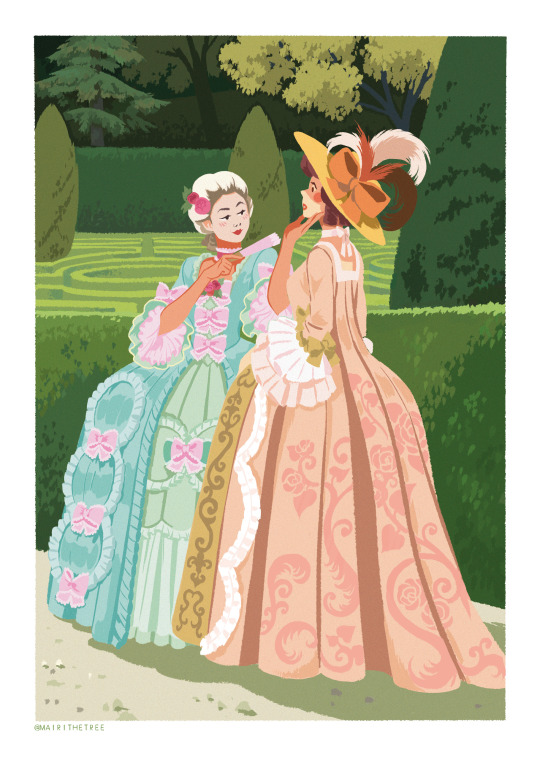
A subtle flirt in the garden by mairithetree
“It’s a pity you always hide your face underneath these hats. You should reveal yourself more, my dear.” 💕
For Pride Month, a sapphic romance set during the 18th century in the park 🥰 The dresses are “robes à la française”, I took inspiration from these photos : link, link, link & link ! It took me some time to finish it and I’m happy with how the dresses look ✨
This illustration is a companion piece of that one I did last year 💖: link
#pride month#lesbian#lgbtqplus#illustration#artists in tumblr#artists on tumblr#romance#my stuff#18th century
2K notes
·
View notes
Text
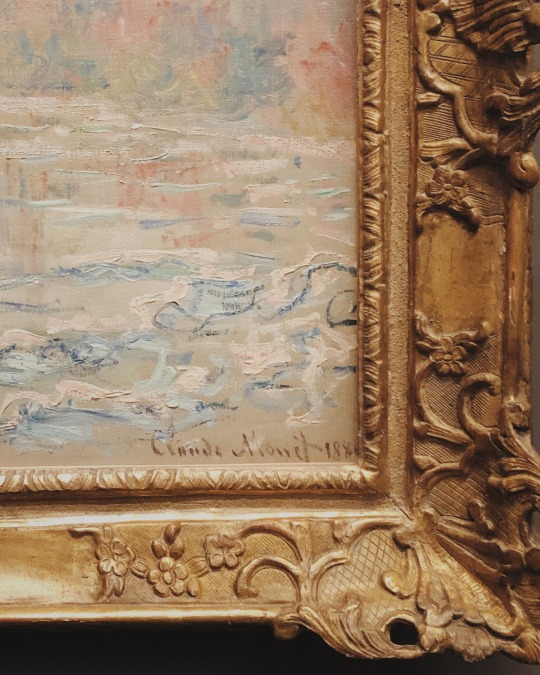


treasures, paris xx
#paris#france#art museum#Monet#painting detail#cupid and psyche#psyche awakened by cupids kiss#antonio canova#canova#sculpture#neoclassical sculpture#neoclassical#18th century art#musee du louvre#impressionist art#roses#rose garden#musee rodin#romance#romantic academia#light academia aesthetic#light academia#dark academia#academia aesthetic#art academia#mine#my photos#travel#travel memories#queue
496 notes
·
View notes
Text

#sorrows sorrows prayers#queen charlotte a bridgerton story#queen charlotte#queen of england#king george smut#young king george#corey mylchreest#bridgerton#lady whistledown#india amarteifio#romantic academia#romance#perioddramaedit#17th century#1700s#18th century#1800s
91 notes
·
View notes
Text
Napoleon and his first girlfriend, Caroline de Colombier

“It will seem very difficult to believe,” he later recalled of the innocence of their relationship as they walked through meadows at dawn, “but we spent the entire time eating cherries!”
— Andrew Roberts, Napoleon: A Life
#Napoleon#napoleon bonaparte#valence#18th century#1700s#Caroline de Colombier#napoleonic era#napoleonic#romance#first french empire#19th century#french empire#France#french history#history#art
109 notes
·
View notes
Text
“She was a star. She was a comet. She was everything that sparkled in the night sky, brought down to earth by magic the church swore didn’t exist.” - Queen Charlotte: A Bridgerton Story
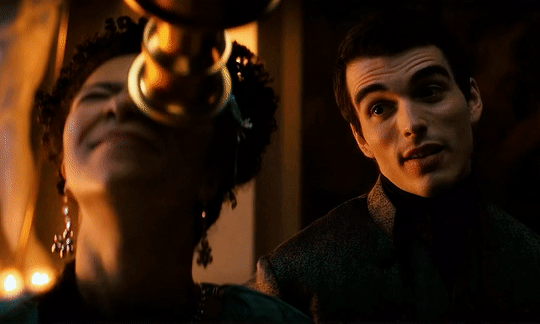
#queen charlotte#king george iii#bridgerton#india amarteifio#corey mylchreest#george x charlotte#king george bridgerton#charlotte of mecklenburg strelitz#queen charlotte a bridgerton story#period romance#period drama#18th century
108 notes
·
View notes
Text

Sam Heughan in Outlander (2014– ) The Devil's Mark
S1E11
Geilis and Claire are imprisoned pending their trial for witchcraft. Geilis admits to Claire that she killed her husband Arthur, which isn't a surprise. She also admits that she is devoted to the Jacobite cause. The trial itself has all the makings of a one-sided affair but Ned Gowan arrives in time to provide both of them with something of a defense. The witnesses against them include Geilis' housemaid, a woman who bought a love potion from her and Laoghaire who claims Claire stole Jamie from her with magic. As the trial comes to an end, Ned tells the two women that the only solution is for Claire to save herself by denouncing Geilis. She refuses to do so but Geilis saves her - and reveals her great secret. Jamie takes Claire from the court and Claire tells him the truth about her past...
*The quote that Claire recites to Geillis, 'I only regret that I have but one life to lose for my country', would be uttered 33 years later in 1776 by Nathan Hale, a spy who served in the Continental Army during the American Revolutionary War. Geillis, upon recognizing this quote, looks shocked because this is the moment she realizes that Claire, just like herself, is from the future.
#Outlander#tv series#2014#The Devil's Mark#S1E11#witch trial#secrets#revelations#Geilis and Claire#Sam Heughan#time travel#Scotland#18th century#drama#fantasy#romance#period drama#just rewatched
19 notes
·
View notes
Text
guess who got phd funding!!!!
#meeee>:)#my project is on women’s youth in the 17th and 18th centuries#focusing primarily on their experiences w (and contemporary attitudes towards) sex and romance
18 notes
·
View notes
Text
“I still have sufficient grace to shudder at Sorcery, and avoid a crime so monstrous, so unpardonable!”
“Unpardonable, say you? Where then is your constant boast of the Almighty’s infinite mercy? . . . Away then with these childish scruples: Be persuaded to your good, and follow me to the Sepulchre.”
“. . . I will not follow you to the Sepulchre, or accept the services of your infernal Agents. Antonia shall be mine, but mine by human means.”
“Then yours She will never be! You are banished her presence; Her Mother has opened her eyes to your designs, and She is now upon her guard against them. Nay more, She loves another. A Youth of distinguished merit possesses her heart, and unless you interfere, a few days will make her his Bride. This intelligence was brought me by my invisible Servants, . . . Nay, I was constantly with you in some degree, thanks to this precious gift!”
With these words She drew from beneath her habit a mirror of polished steel, the borders of which were marked with various strange and unknown characters.
“. . . On pronouncing certain words, the Person appears in it on whom the Observer’s thoughts are bent: . . .”
“. . . Matilda, are you not amusing yourself with my credulity?”
“Be your own eyes the Judge.”
She put the Mirror into his hand. Curiosity induced him to take it, and Love, to wish that Antonia might appear. Matilda pronounced the magic words. . . . He beheld in miniature Antonia’s lovely form.
. . . She was undressing to bathe herself. The long tresses of her hair were already bound up. The amorous Monk had full opportunity to observe the voluptuous contours and admirable symmetry of her person. She threw off her last garment, and advancing to the Bath prepared for her, She put her foot into the water. It struck cold, and She drew it back again. Though unconscious of being observed, an inbred sense of modesty induced her to veil her charms; and She stood hesitating upon the brink, in the attitude of the Venus de Medicis. At this moment a tame Linnet flew towards her, nestled its head between her breasts, and nibbled them in wanton play. The smiling Antonia strove in vain to shake off the Bird, and at length raised her hands to drive it from its delightful harbour. Ambrosio could bear no more: His desires were worked up to phrenzy.
“I yield!” He cried, dashing the mirror upon the ground: “Matilda, I follow you! Do with me what you will!”
— The Monk: A Romance (1796) ֍ Matthew Gregory Lewis
#the monk#the monk: a romance#matthew gregory lewis#gothic horror#literature#18th century literature#books#booklr#bookblr#dark academia#classic academia#gothic academia#romantic academia
8 notes
·
View notes
Text
Laces for a Lady - poly, m. shapeshifters x f. human romance story in the works
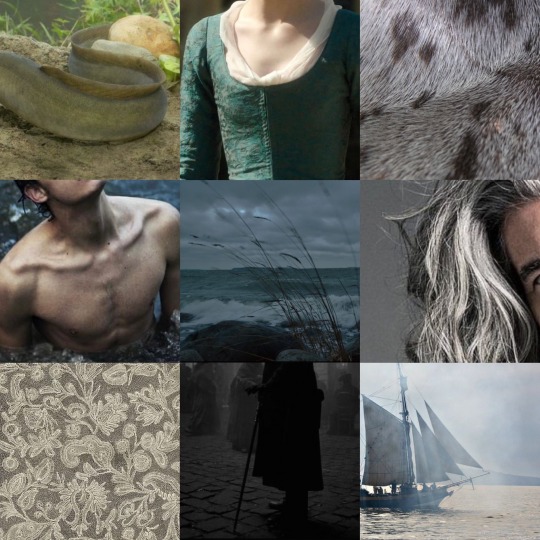
So... I may be sort of ready to start posting chapters of 'Laces for a Lady', which I teased a while ago, and which is currently undergoing a massive re-write. It's my polyamorous, slow-burn romance, set in the heyday of Cornish smuggling in the late 1780's, but with secretly supernatural/shape-shifter characters too. Think Poldark, but with fantasy elements....
It features: a sweet, shy selkie with a life-changing injury, a surly and initially hostile bucca (Cornish eel-related shapeshifting marine spirit known to help locals who leave offerings/treat him respectfully), a country gentleman's daughter from Sussex who's scandalously unmarried at twenty five (sarcasm), a delicate young widow in need of companionship and confidence, some smuggling, a storm, a near-death accident and some light heroism from our leading lady, multiple lgbt+ characters, a rather charged harvest festival dance and a contrastingly extravagant Christmas Ball in the city, a bit of angst, a degree of period-accurate homophobia, sexism, and prejudices, a spirited horse friend named Blackthorn, and finally some spice between our love interests.
Interested? If so, I'll post chapter one fairly shortly for you.

#laces for a lady#selkie#bucca#Cornish smuggling#18th century romance#historical fantasy#polyamarous#poly story#poly romance
152 notes
·
View notes
Text
Me saying i can't major in history bc i'm bad at remembering years and names so i major in language and literature (where i have to remember years and names)
#remember my rant a bit back about how it's impossible to study the arts without also studying world history and it's impossible to study#history of one place or time without also studying the surrounding history#well. you won't believe it but to study about romance literature in italy i need to learn about napoleonic wars and the#various revolutions of the 18th century#:/
11 notes
·
View notes
Text
love how in the historical romance world, both straight and gay, your career options as a man are duke, earl, crime boss, and pirate. that's it.
#obviously the correct answer here is crime boss#i mean I wrote one (1) historical and the main guy is a former spy and his rival is a count so i can't talk shit#i mean i'm gonna#i'm gonna continue to talk shit#but from a place of hypocrisy#self aware hypocrisy#i am Aware and I am gonna do it anyway#also i mean i can think of one famous counter example about a baker but of course I've never read it bc there's no crime or murder#just calm cozy slice of life and 18th century baking techniques#presumably more realistic historical romance fiction exists and i never read it#and i'm not gonna start now! i am gonna reread phantom of the opera for the 473843743878743th time
14 notes
·
View notes
Photo

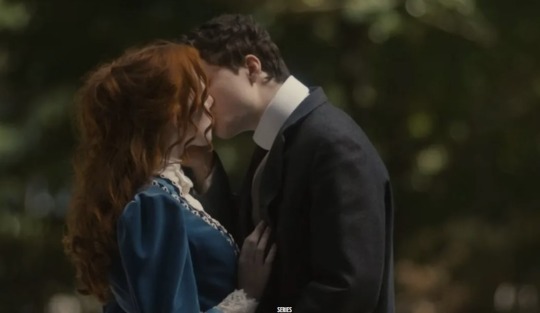
OH to write a letter confessing my love to the boy I’ve loved for years but hadn’t known. And OHHH to receive a love letter, weighing on my table but tearing it off before I could read because I was maddening with anger. And OHH to finally have the most perfect kiss after all misunderstanding dissipates like thin air.
When is it my turn to have a tragical romance when this generation doesn’t even understand the word itself?
#anne with an e#dark academia#dark poetry#dark academism#dark acadamia aesthetic#anne and gilbert#anne shirley#anne shirly cuthbert#anne of green gables#Writers and Poets#poets on tumblr#spilled poetry#spilled ink#spilled thoughts#dark academia lovers#18th century#19th century#chaotic academia#romancelover#romance#love story#romcom#friends to lovers#romantic academia#romanticism#september#fall vibes#fall season#brown academia#twinflame
223 notes
·
View notes
Text

#goth#gothic#gothic romance#book#books#reading#bookblr#literature#ann radcliffe#horace walpole#a sicilian romance#romance#vintage#18th century#19th century
5 notes
·
View notes
Text
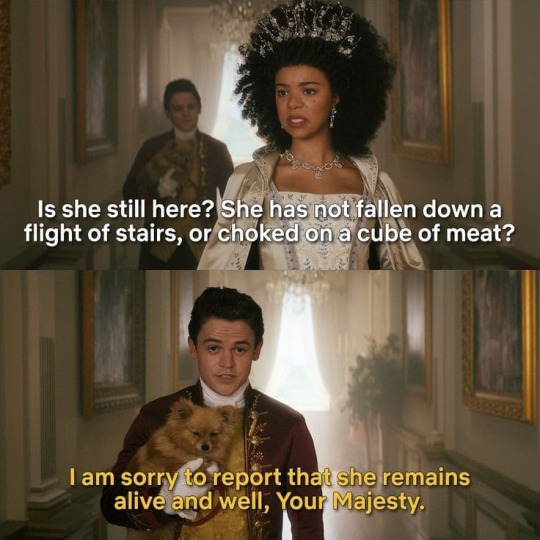
#queen charlotte a bridgerton story#queen charlotte#queen of england#king george smut#young king george#lady whistledown#bridgerton#romantic academia#romance#perioddramaedit#corey mylchreest#india amarteifio#17th century#1700s#18th century#1800s
58 notes
·
View notes
Text
The words of Theodore, which told her he was fearful she was deceived, confirmed this most painful apprehension of La Motte, with another yet more distressing, that Madame La Motte was also united against her. This thought, for a moment, subdued terror and left her only grief; she wept bitterly. ‘Is this human nature?’ cried she. ‘Am I doomed to find every body deceitful?’
Ann Radcliffe, The Romance of the Forest
#the romance of the forest#ann radcliffe#1791#1790s#18th century#english literature#queue pierce my soul
2 notes
·
View notes